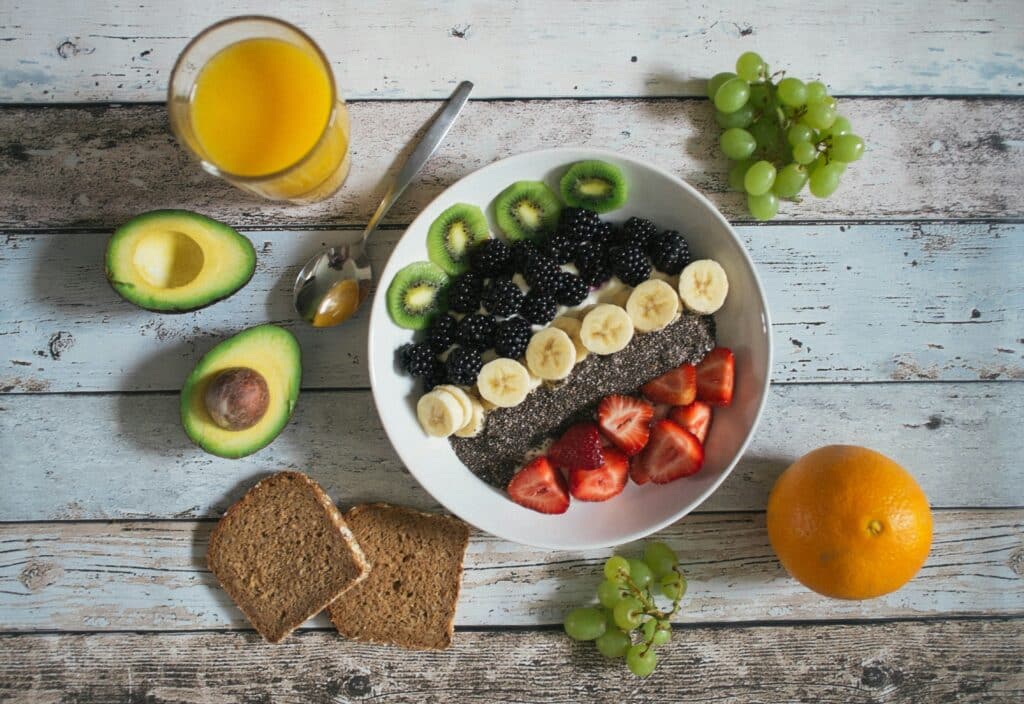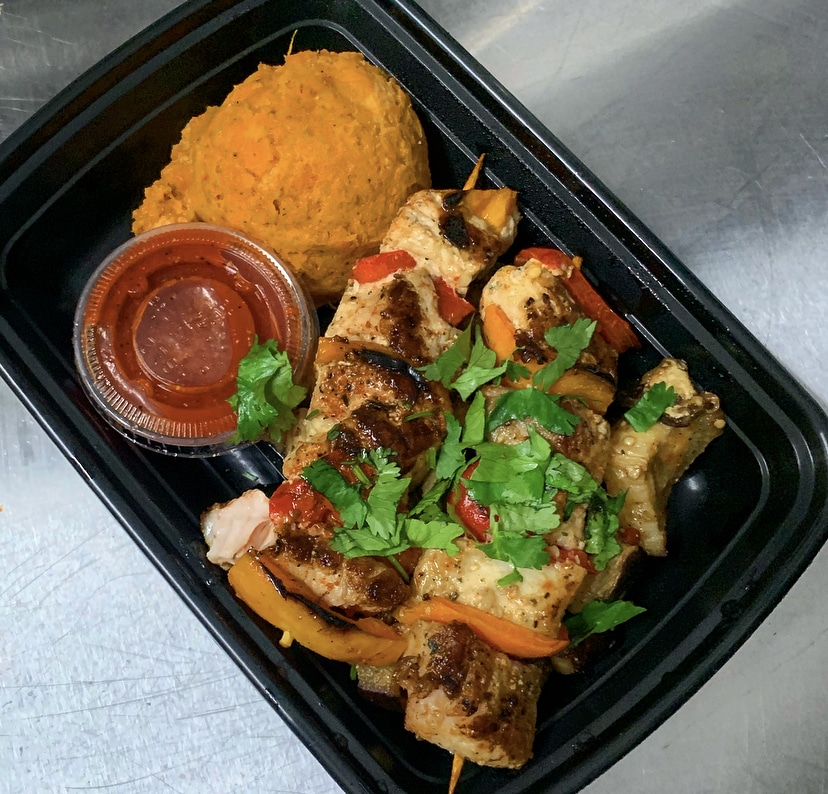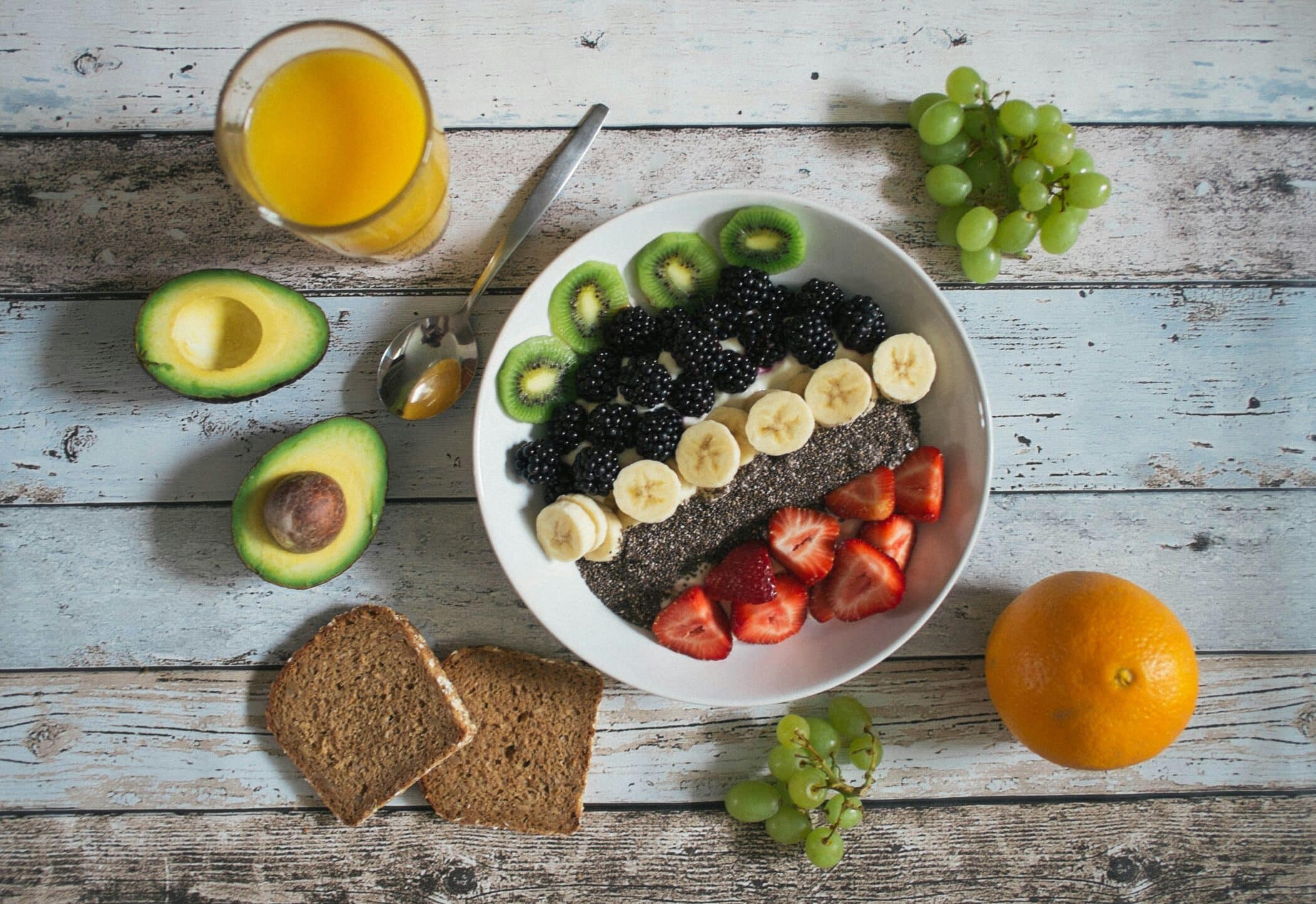
Every athlete knows that physical health is an important part of an active lifestyle. They depend on skill, endurance, and strength, whether you are making a final push across the finish line, going for the ball, or lifting weights. But, what should athletes eat
When you want to be the best at something that takes time, patience, and training. That said, you must take special attention to getting enough vitamins, calories, and other nutrients to help you have enough energy.
Usually, an athlete`s diet is not much different than that of any person who wants and tries to be and eat healthily. Choices from each food group need to be included in the diet. In this text, you can read about the food that athletes should eat so they can reach their goals.

Table of Contents
Things that you need to know about athlete`s diet
Athletes may need to eat more or less of certain food depending on different factors, such as:
- The amount of training
- Path to improved health
- Type of sport
- Time spent in training
Every person has different needs. The amount of food you might need depends on your height, weight, age, activity level, and of course, sport. However, you always need to replace the number of calories that you burn during the day.
Calories are the energy that we get from the food we eat. Most people need somewhere around 1.500 and 2.000 calories per day. On the other hand, athletes may need around 2.000 and 3.000 calories.
If you are not sure about a healthy daily calorie intake, always consult with your doctor or other professional. Together, you can determine what are your nutrition needs and healthy daily calorie count. For sure, over time, you will easily learn to make a balance between your calorie intake and spending so you will avoid extreme weight loss or gain.
Calories and important nutrients
Like everyone else, athletes need vitamins and minerals. To stay healthy, a nutrient-rich and balanced diet is very important. The food that you eat should be full of iron, potassium, fiber, and calcium. Vitamins, such as E, C, and A should be in your diet, too.
Try to stay out of junk food. They are an empty source of calories. That is why you should focus on whole grains, a mixture of fruits, vegetables, and lean meats. They will help you fuel your body in a healthy way.
It is important to know that calories come in different forms. The main types of calories come from fats, proteins, and carbohydrates.
Fat
This is an important source of calories. When taken in small amounts fat is an important fuel source. It helps other functions, such as supporting hair and skin. You should not replace carbs with fats in your diet. That can slow you down because your body will need to work harder to burn that fat for energy.
Fats should be no more than thirty percent of daily calories. Whenever you can, try to choose unsaturated fats, like nuts or olive oil. They are better for your health. That said, too many of the wrong types of fats can cause health problems. They can raise cholesterol levels and increase the risk of heart disease or type two diabetes.
Protein
It should be around ten to fifteen percent of daily calories. Foods like eggs, milk, beans, meat, nuts, and meat. Some athletes think that they should eat a large amount of protein because it builds muscle. But, high doses will not help bulk up. Over time, too much protein can be bad for your health. If you take too much for a long time, it can lead to problems with the kidneys or liver.
Carbohydrates
Carbs are our body`s biggest source of calories. Carbs like milk, fruits, and vegetables are easier for our bodies to break down. They will give us a quick energy burst. Whole grain products have the most nutritious carbs. You can find them in whole-grain bread, brown rice, oatmeal, potatoes, and kidney beans. Fifty-five to sixty percent of your daily calories should come from carbohydrates.
Athletes should know when to eat and hydrate
Athletes need to know when to eat and rehydrate. It is crucial to know what but also when to eat. For example, if you have an important game, try to eat your pre-event meal two to four hours before. If you have a face, dinner, the night before is a good choice.
A good meal before an important event has a lot of complex carbs and less protein or sugar. You should avoid greasy and rich foods. They can be hard to digest and your stomach might get upset. Avoid food an hour before the event. Digestion uses our energy.
One of the most important things is also staying hydrated. Especially on a game day. Our body is made of almost sixty percent of water. When we work out, we lose fluid when we sweat. One sign of dehydration is thirst. Drinking water before we feel thirsty is the best way to stay hydrated. Don`t drink a lot because you will feel full, but try to drink small amounts every 15-20 minutes.
Water is the best to help you rehydrate. If you are attending the event in under an hour, water will replace what you lose when sweating. If the events are longer, you may use sports drinks. They provide carbohydrates and electrolytes.
Some experts also recommend chocolate milk after exercising. Muscle recovery will come faster because of the protein in milk. Usually, it has less sugar than energy or sports drinks, and it is rich in minerals and vitamins. Maybe you should stay away from drinks that have caffeine. They might dehydrate you more or make you feel jittery or anxious.
Something more you should consider
As an athlete, you need a lot of nutrients and energy to stay in shape. A strict diet plan might be bad for your ability or harmful to your health. You may not have enough strength without calories from fat, protein, and carbs. Not eating enough is not a good choice. Be sure to talk to a professional to help you build a good meal plan that will work well with your goals and needs.
Don`t overestimate the number of calories you burn when you train. Don`t take more energy than you will lose by exercising. Also, don`t exercise on an empty stomach. Of course, every individual is different.
Consider how long before working out is good for you to eat. What is the right amount for you, do you need to lose or gain weight so your performance can be better, be sure to do that safely.
Food that athletes should eat
Here you can find some ideas that can help you stay on track and find the food that will provide you with enough energy. The type of food an athlete eats is important for sports performance and health. When you include these foods in your eating plan, you will feel well and fuel yourself better.
- Cold or ready-to-eat cereal – Cereal has nutrients like iron, calcium, folic acid, and vitamins E and A and that is why they are healthy and a great part of your diet. You can have them for snacks, breakfast, or dinner, but choose a cereal with less than eight or nine grams of sugar per serving.
- Beans – They are full of protein, fiber, zinc, iron, and magnesium, which is why you should include them in your diet plan. They can be in your salad, burrito, pasta dish, or crunchy snack.
- Yogurt – It is a great source of vitamin D, potassium, calcium, and protein. Greek varieties have extra protein if that is what you need. Also, you can eat yogurt as a snack, part of a meal, or dessert.
- Nuts – They are full of fiber, protein, healthy fats, vitamin E, and magnesium. Grab a handful on the way to training or put them on top of yogurt or cereal. Small bags of almonds, cashews, or peanuts are a tasty and quick snack.
- Seeds – Seeds are full of healthy fats, magnesium, vitamin E, and fiber, similar to nuts. You can eat them in the same way, too. They are a good substitute for athletes allergic to nuts.
- Cheese – It has potassium, protein, and calcium. This is an easy and quick snack. Especially if it is packed in blocks or sticks. You can eat cheese in casseroles, sandwiches, or pasta.
- Orange juice – Only one hundred present orange juice, of course. You will get vitamin D, folic acid, vitamin C, and calcium. Try not to have more than one cup per day, because it can be a significant source of calories.
Additionally, these food groups are the most important
1. Dairy
This food group has complete proteins, potassium, carbohydrates, calcium, and more. This provides crucial components for bone strength, energy production, and muscle recovery. 2-3 cups of low-fat dairy a day, cow`s milk, plant-based beverages, cheese, or yogurt, are very important for an athlete.
2. Grains
Whole grains have a lot of minerals, fiber, and vitamins. That is why they should be prioritized in the diet. These nutrients will be great resources for intensive activities and recovery, too. These high-starch foods should be consumed based on a physical activity level, and not more than one or two fists at each meal.
3. Proteins
Protein sources include all of the most important amino acids for our body. They are crucial for muscle maintenance, chemical reactions, and cell structure. Animal proteins are complete sources for these actions, but other proteins can also provide great amounts of amino acids as well. Fish and poultry should be prioritized in the diet in about a quarter of a plate portion.
4. and 5. Fruits and vegetables
Together, they are two essential food groups and they should be about half of the plate or fifty percent of each meal. They provide us with vitamins, minerals, fiber, carbohydrates, antioxidants, and water and they work together to give us hydration, energy, digestion, and injury/recovery prevention. When we talk about starchy vegetables, such as peas, corn, potatoes, or fruit, the serving size should be about a fist or two.
Final word
Good nutrition should be flexible and individualized to athletes` preferences, tastes, and lifestyles. You should combine the food groups previously mentioned. Listen to your body and how it responds to them, so you can mend your approach if that is necessary.
As often as you can, choose foods that can help you get enough protein, carbohydrates, healthy fat, and protein and implement them in your meals and snacks. A balanced diet is essential to give you enough energy for growth and activity.
An eating plan is something that should help you reach your goal and it should match your physical demands. It can help you be better that your competition and complement your training.

